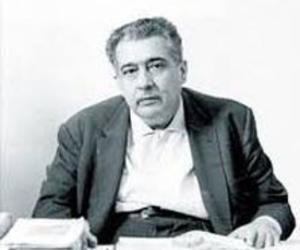Diaries in Lezama Lima Code
- Submitted by: manso
- Arts and Culture
- 10 / 05 / 2010

Lezama’s ineludible metaphysic, a result of his encyclopedic knowledge and deep Cuban roots, sprouts in every line of Jose Lezama Lima’s Diaries marked by the fanciful rhythm of his grammar.
In the year of his centenary the thoughts of the famous author of Paradiso stamped in manuscripts dated between October 18, 1939 and July 31, 1949 re-emerge under the seal of the Ediciones Union publishing house.
There are other occasional notes by Lezama dated in 1956, 1957 and 1958 that were collected by Cuban journalist Ciro Bianchi Ross —friends with the writer and one of the most tenacious compilers of his work–, in an effort to “bring the reader closer to Lezama in full.”
The fist one covers a period of fruitful creativity. The time of Enemigo rumor (1941), Aventuras sigilosas (1945) and La fijeza (1949), the latter written in the same year in which he published the opening section of his monumental novel of the universal literature Paradiso in the Orígenes magazine.
However, those who take a look at the journals hoping to drink from the intimacy of the writer might not have all of their expectations met since the dairies are only open to personal confessions.
They treasure thoughts that could have become poems, chronicles or seeds of an essay.
As writer Rogelio Riveron said “they are not actually less of a fiction than his fictions.” They are, undoubtedly, an outline of the coordinates of Lezama’s poetic system.
In the second one –as Bianchi notes in the prologue— “he barely writes down facts but feelings, although every now and then one can feel the flow of life through its pages and the daily life of a man who celebrates the feast of his patron saint and gets excited even about his spiritual poverty…”
An example of that is the note dated Monday, August 13, 1956, when the lonely tenant of Trocadero street wrote: “there are three days to go to get our two-week pay. I don’t know if I should ask for an advance or spend three days without money, then mum will give me 20 or 30 cents. Thus I feel like a child…”
With this type of book you usually make your own discovery.
Notes that suggest polemics, to set concepts, because as the compiler states “they were not meant to fall on deaf ears or to die in themselves.”
They are a tool for those looking to decode the magnitude of this disdainful, ironic, passionate man who handled indifference with total dignity and fame with total indifference.
Source: www.cubanow.net/pages/articulo.php?sec=7&t=2&item=8772
Comments